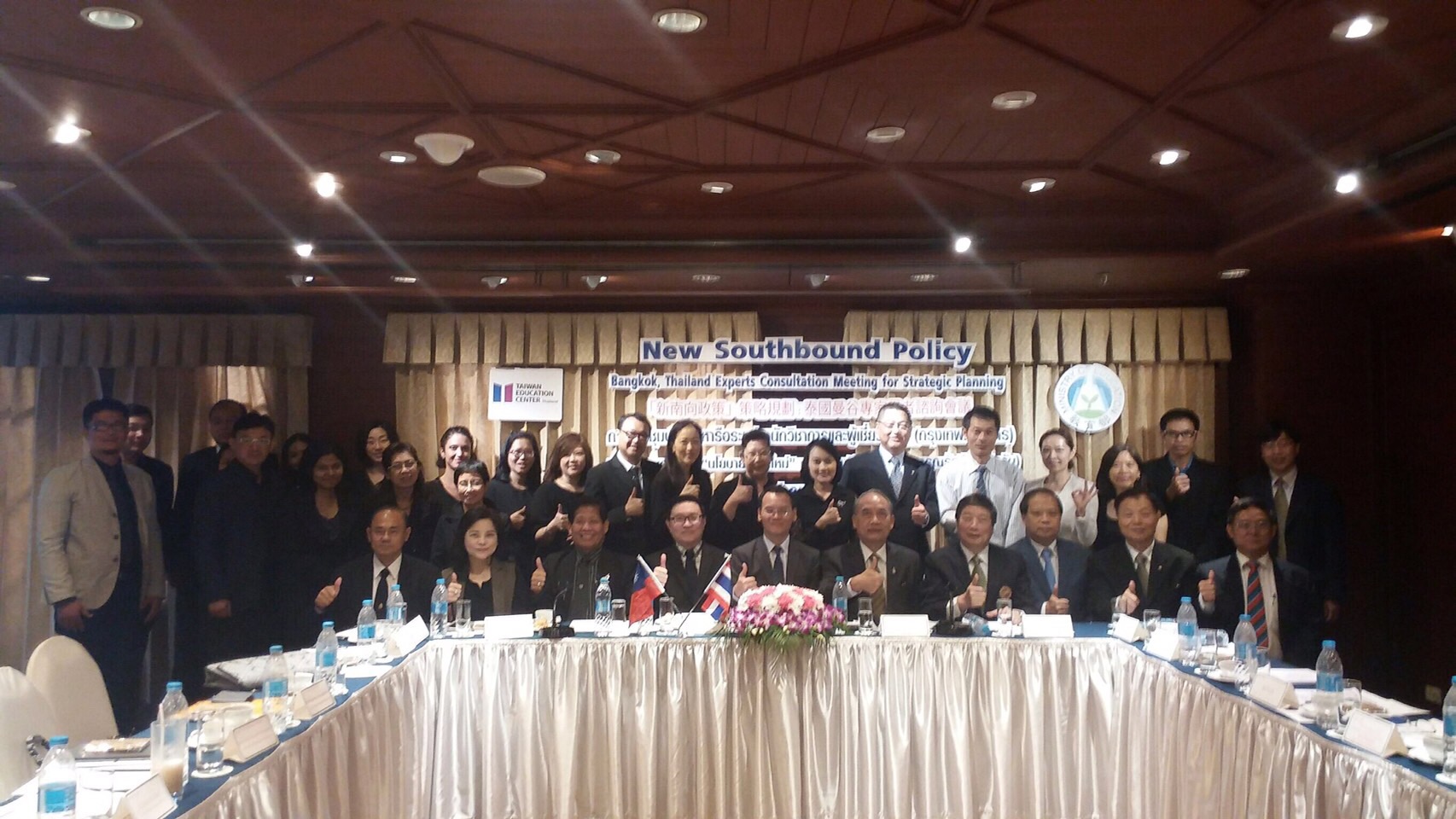Thai Expert Consultation Meetings for Strategic Planning for the New Southward Policy held in Bangkok and Chiangmai

The new policy is an outward-oriented economic strategic plan that puts people at its core: it is “people-centered” rather than simply profit-driven. In the education field, a top priority of the policy is to bolster people-to-people exchanges and flows between Taiwan and Southeast Asia.
Taiwan has an edge over countries in Southeast Asia in the higher education sector, and it is an ideal destination for Southeast Asian students. The Ministry of Education plans to allocate NT$1 billion (US$31.9 million) for undertaking New Southward Policy-related initiatives in the next academic year. Each will be specifically designed to meet the skilled workforce needs of different countries and regions by training more young people.
Taiwan is planning to expand the number of scholarships available for students from ASEAN countries and South Asia; to create courses incorporating academia-industry cooperation and technical training for overseas youth; and then provide job matching services for students after their graduation. This will include young people from Thailand.
The Ministry of Education commissioned National Pingtung University of Science and Technology to organize two panel meetings in Thailand to have a better understanding of the current situation of key industries of Thailand, to help Taiwan to make appropriate strategic plans under the New Southward Policy.
The panel meetings were held in Chiangmai and in Bangkok, on November 15 and16. Approximately 50 university delegates, government officials, and local business people attended these meetings and addressed such practical questions as:
What are the demands for manpower in Thai industry? What are the potential fields for educational cooperation between Taiwan and Thailand? What are the workforce skills that educational institutions in Taiwan and Thailand need to provide training in? What teaching materials, methods, and sources of funding are available?
Certainly, it was not possible for just two short meetings to identify all the best strategies for the Ministry of Education in Taiwan to adopt for Taiwan and Thailand to give young people skills training and have them learn each other’s language. But these meetings represent a good start.
